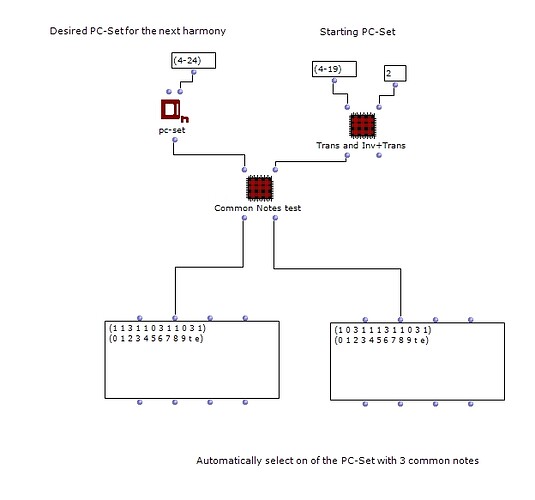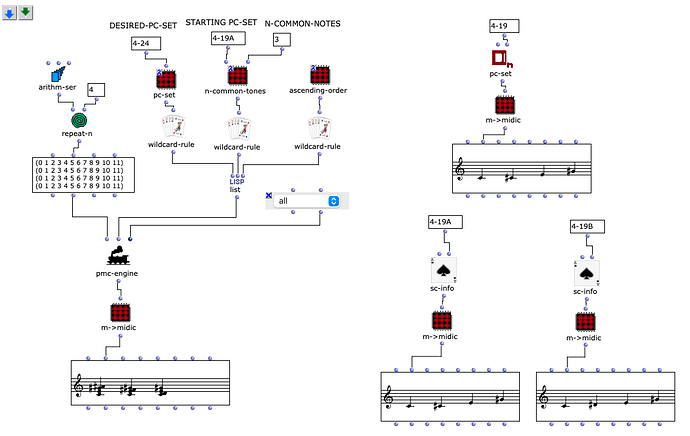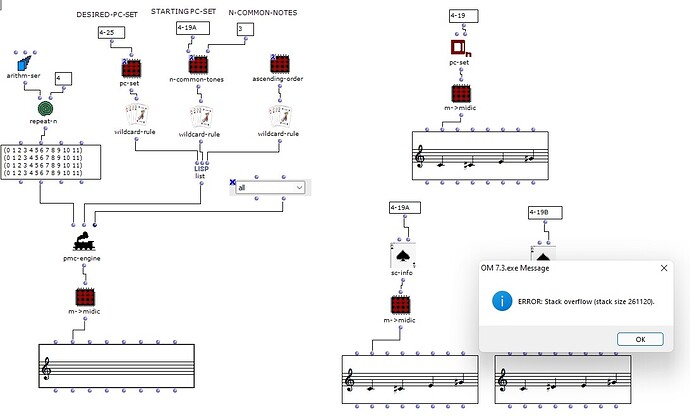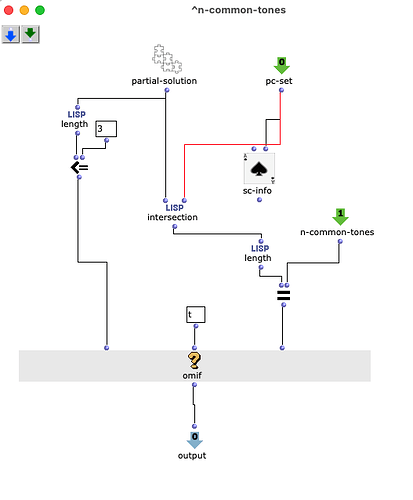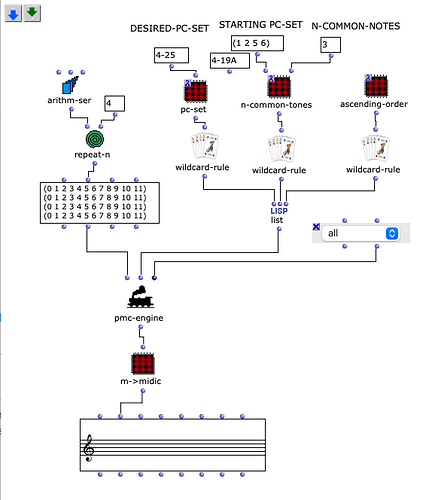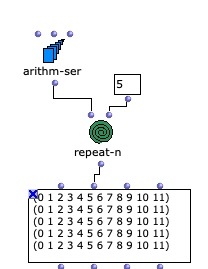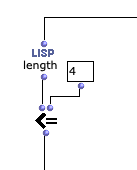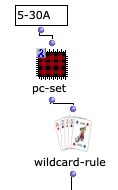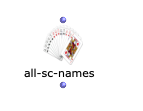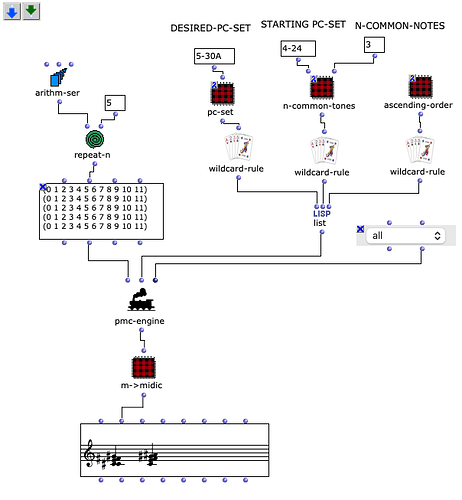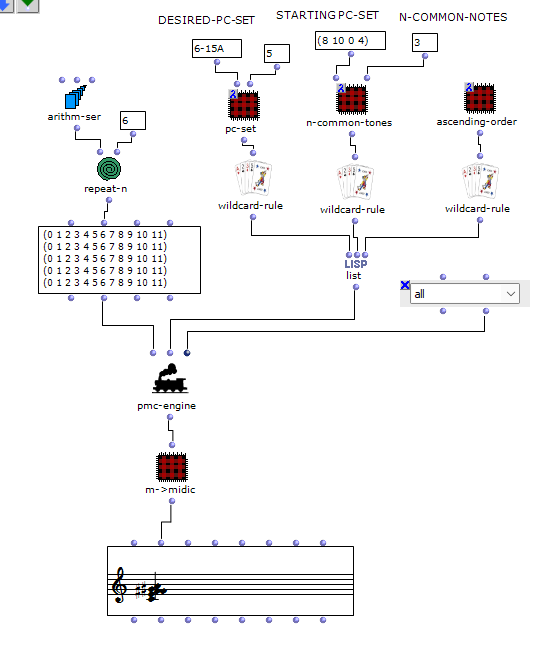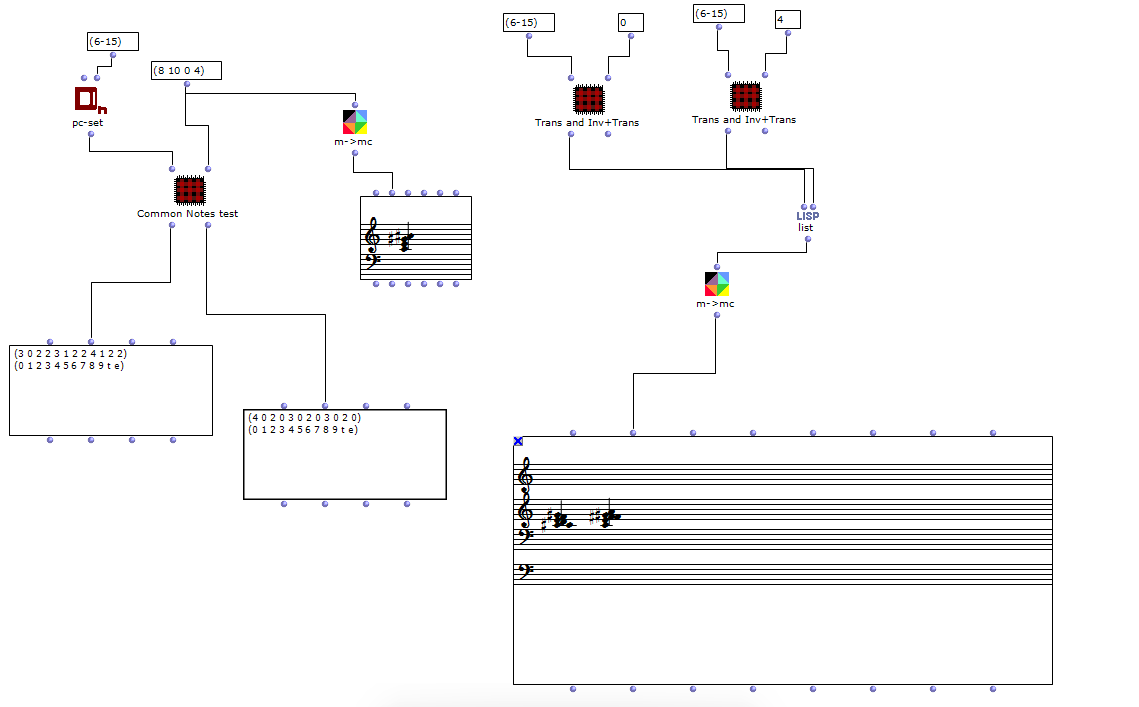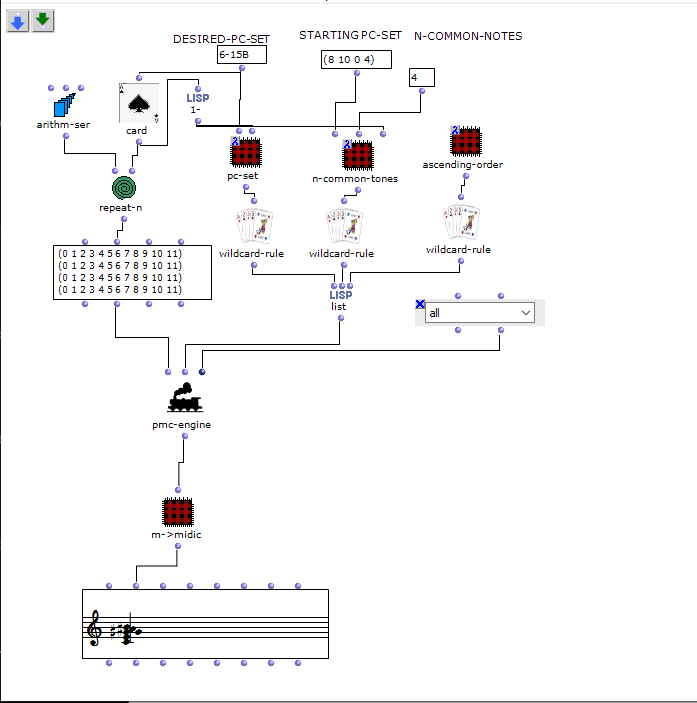Hello,
Im currently trying to create an automated patch to make a progression of PC sets using a specified amount of common notes between successive Sets to progress. However, while I was able to use Mathtools to create a list of suitable sets (transpositions or inversions), my intention is for the patch to automatically select a random chord that fits the rule.
I think the omif functions should be able to do this relatively easily, but im stuck at the moment.
PC-Sets- common notes.omp (24.3 KB)

